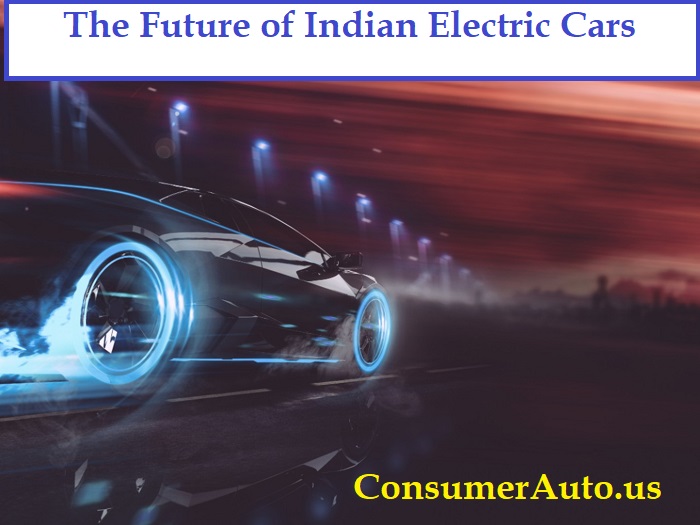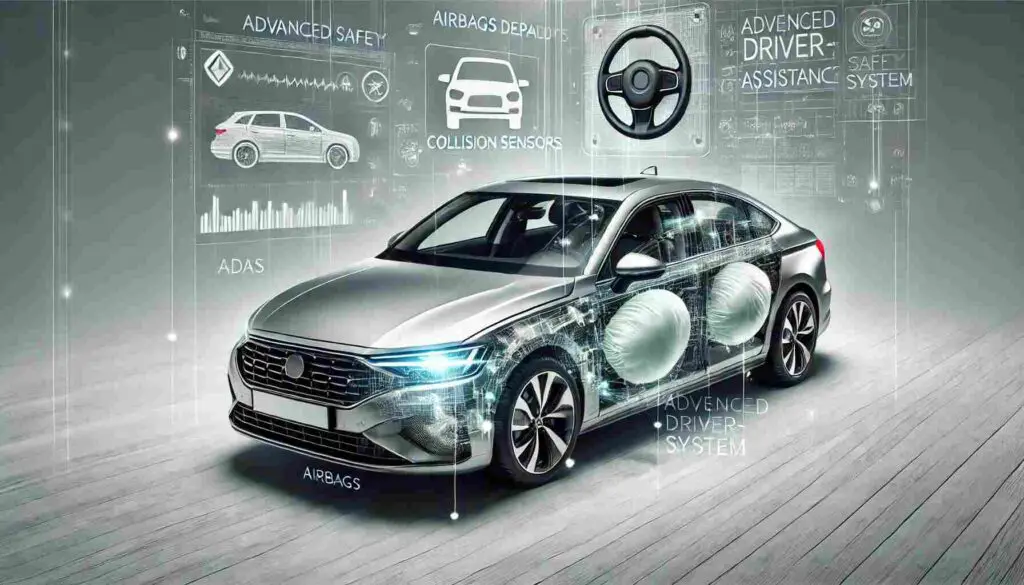In the wake of escalating global concerns about climate change and the pressing need for sustainable practices, the automotive industry is undergoing a profound metamorphosis. India, as one of the world’s largest automobile markets, plays a pivotal role in shaping the future of electric vehicles (EVs). This comprehensive article delves into the immense potential of Indian electric cars in spearheading a green revolution, exploring their technological advancements, the role of government initiatives, challenges, and the overall impact on the nation’s economy and environment.
Advancements in Indian Electric Cars
India’s electric vehicle market has witnessed a rapid surge of technological advancements in recent years. Electric cars are now equipped with cutting-edge features, such as artificial intelligence (AI) and Internet of Things (IoT) integration. These transformative technologies optimize vehicle performance, enhance safety standards, and offer a seamless driving experience. Battery technology has also undergone significant improvements, resulting in longer ranges and reduced charging times, making EVs more practical and appealing for daily use.
Government Initiatives and Policies
The Indian government has taken proactive measures to promote the adoption of electric vehicles and address environmental concerns. An array of incentives and subsidies are offered to both EV manufacturers and buyers, making electric cars more affordable and accessible. The government’s focus on developing a robust charging infrastructure across the country aims to alleviate range anxiety and foster widespread EV adoption. Moreover, future regulations and mandates are being meticulously planned to expedite the shift towards electric mobility.
Leading Indian Electric Car Manufacturers
Several Indian automobile manufacturers have emerged as pioneers in the electric vehicle revolution. Renowned companies like Tata Motors, Mahindra & Mahindra, and Hero Electric have unveiled a diverse range of electric car models catering to different market segments. These companies have garnered popularity through their innovative designs and features, effectively captivating the interest of consumers and driving the adoption of electric mobility.
Challenges and Solutions in the EV Industry
Amidst the progress made, the EV industry in India faces some significant challenges that necessitate effective solutions for successful mass adoption. Key concerns include range anxiety and the scarcity of a comprehensive charging infrastructure. Finding sustainable solutions for EV battery production and disposal is imperative to minimize their environmental impact. Additionally, making electric cars affordable for a broader audience and ensuring second-life applications for batteries will be instrumental for long-term sustainability.
The Role of Renewable Energy
Renewable energy sources and electric vehicles are inextricably linked, providing a seamless path towards a greener future. The integration of solar and wind power into EV charging networks not only reduces carbon emissions but also establishes a more resilient and decentralized energy system. Harnessing the full potential of renewable energy will play a vital role in transforming India’s transportation sector and reducing its dependency on fossil fuels.
Electric Cars in Ride-Sharing and Public Transportation
Electric cars are rapidly gaining prominence in the ride-sharing and public transportation sectors in India. Numerous ride-hailing companies have taken the initiative to incorporate electric cars into their fleets, significantly reducing emissions and contributing to cleaner air in urban areas. Moreover, the implementation of electric buses and trains in public transportation systems will play a crucial role in reducing India’s carbon footprint and improving overall urban air quality.
Impact on Indian Oil Industry and Energy Sector
The swift adoption of electric vehicles will inevitably impact India’s oil industry and energy sector. As EVs become more prevalent, there will be a notable decrease in the demand for conventional petroleum-based fuels. This transformative shift presents an unparalleled opportunity for the country to transition towards cleaner energy sources and invest in renewable energy technologies, ultimately contributing to a sustainable and eco-friendly future.
Consumer Adoption and Awareness
Consumer awareness and acceptance are key determinants influencing the success of electric cars in India. Despite the growing popularity of EVs, many consumers still harbor hesitations due to misconceptions or a lack of information. It is imperative to embark on comprehensive public education initiatives, highlighting the myriad benefits of electric vehicles, including cost savings and significant environmental advantages. By doing so, widespread adoption of EVs can be encouraged, further expediting the green revolution.
Electric Cars and Smart Cities
The concept of smart cities and electric mobility harmoniously complement each other. By integrating electric vehicles with smart grids and energy management systems, a sophisticated synergy can be achieved to optimize energy usage and enhance overall urban mobility. Electric cars play a pivotal role in reducing traffic congestion and emissions, thereby contributing significantly to the development of sustainable and efficient smart cities.
Future Trends in Indian Electric Cars
The future of Indian electric cars looks exceedingly promising. As technology continues to evolve, electric vehicles are poised to become even more advanced, boasting improved battery capacities, extended ranges, and enhanced autonomous driving capabilities. In the realm of innovation, the industry can expect to witness numerous partnerships and collaborations between traditional automakers, tech giants, and ambitious startups, catalyzing progress and driving the green revolution further.
Environmental Impact and Carbon Footprint
One of the primary motivations behind embracing electric vehicles lies in their commendable impact on the environment. Electric cars produce zero tailpipe emissions, significantly curbing air pollution and greenhouse gas emissions. Nevertheless, it is essential to prudently consider the environmental impact of battery production and disposal to ensure that electric vehicles remain genuinely eco-friendly throughout their lifecycle.
Electric Cars and Job Creation
The transition towards electric mobility simultaneously presents both challenges and opportunities for employment in India. While some jobs in the traditional automotive sector may be affected, the EV industry will create an abundance of new employment opportunities in research, development, manufacturing, and related service sectors. Prioritizing skill development and training will be pivotal in equipping the workforce to embrace this transformative shift.
The Role of Startups in the Electric Vehicle Space
Startups play an indispensable role in driving innovation within the electric vehicle space. Numerous Indian startups are fervently working on disruptive technologies and pioneering business models that have the potential to reshape the entire automotive industry. Nurturing and supporting an entrepreneurial ecosystem will be instrumental in fostering sustainable growth within the EV sector, thereby contributing significantly to the green revolution.
Electric Vehicle Export Potential
India’s burgeoning expertise in electric vehicle manufacturing positions the nation favorably to explore significant export opportunities. By capitalizing on this potential, India can strengthen its global presence in the electric vehicle market, further bolstering the country’s economy while making substantial strides in reducing carbon emissions on an international scale.
Embracing the Green Revolution
The future of Indian electric cars is incredibly promising. The confluence of technological advancements, supportive government initiatives, and a growing environmental consciousness all combine to propel the nation towards a greener and more sustainable future. Electric vehicles are not merely a trend but a transformative force driving India towards cleaner and more efficient mobility.
As the Indian electric vehicle ecosystem continues to evolve, it is crucial for all stakeholders, including manufacturers, policymakers, startups, and consumers, to collaborate and advance this revolution together. By harnessing innovation, investing in renewable energy, expanding charging infrastructure, and raising awareness about the benefits of electric vehicles, India can pave the way for a brighter, greener, and more prosperous future for all.
The green revolution is not just a vision; it is a reality waiting to be embraced by all. By prioritizing sustainability and seizing the opportunities presented by electric mobility, India can become a global leader in the electric vehicle domain, shaping a more ecologically balanced world for generations to come.
Frequently Asked Questions (FAQs)
Q1. What is the current state of the electric vehicle market in India?
The Indian electric vehicle market is experiencing rapid growth, driven by increasing awareness of environmental concerns and government incentives.
Q2. How does the charging infrastructure in India support electric car adoption?
The government and private entities are working together to develop a robust charging infrastructure, with charging stations being installed in various locations across the country.
Q3. Are electric cars more expensive than conventional cars in India?
While the initial cost of electric cars may be higher, operational and maintenance costs are generally lower, making them cost-effective in the long run.
Q4. What incentives and subsidies are available for electric car buyers?
The government offers various incentives, including financial incentives, tax benefits, and reduced registration fees, to encourage the adoption of electric vehicles.
Q5. How does the range of electric cars compare to traditional petrol/diesel cars?
With advancements in battery technology, the range of electric cars has significantly improved and can now match or even exceed that of conventional cars.
Q6. What are the environmental benefits of electric vehicles?
Electric vehicles produce zero tailpipe emissions, helping reduce air pollution and greenhouse gas emissions, contributing to cleaner air and a healthier environment.
Q7. How do electric cars contribute to reducing air pollution in Indian cities?
Electric cars produce no tailpipe emissions, which are a major source of air pollution in cities, thus helping improve urban air quality.
Q8. Are there any potential drawbacks or challenges to using electric cars in India?
Some challenges include range anxiety, lack of charging infrastructure, and the environmental impact of battery production and disposal. However, ongoing efforts aim to address these issues.
Q9. How can the Indian government further encourage electric vehicle adoption?
The government can continue offering incentives, provide further support for charging infrastructure development, and introduce favorable policies to promote EV manufacturing and sales.
Q10. What role do renewable energy sources play in powering electric cars?
Renewable energy sources, such as solar and wind power, can be used to generate electricity for charging electric cars, making them even more sustainable and eco-friendly.
Q11. How can we tackle the issue of recycling EV batteries?
Efforts are underway to establish efficient recycling processes for EV batteries, ensuring that valuable resources are recovered and environmental impact is minimized.
Q12. Will electric cars become fully autonomous in the future?
With ongoing advancements in autonomous driving technology, it is likely that electric cars will become increasingly autonomous in the future.
Q13. What impact will electric vehicles have on employment in the automotive sector?
While there may be job shifts in the automotive sector, the growth of the EV industry will create new employment opportunities in research, development, and related services.
Q14. How can startups contribute to the growth of the electric vehicle industry?
Startups bring fresh ideas and innovation to the industry, driving the development of new technologies, business models, and sustainable solutions.
Q15. What are the prospects for exporting Indian-made electric cars to other countries?
With the growing global demand for electric vehicles, India has a significant opportunity to export its electric cars to international markets, contributing to the country’s economy and global sustainability efforts.
Conclusion
The future of Indian electric cars promises a remarkable journey, as the nation accelerates determinedly towards a green revolution in sustainable mobility. With cutting-edge technological advancements, unwavering government support, and a burgeoning awareness of environmental concerns, electric vehicles are set to revolutionize India’s transportation landscape. By embracing electric mobility, India can not only diminish its carbon footprint but also lead the world towards a cleaner, more sustainable future for generations to come.










1 thought on “The Future of Indian Electric Cars: Pioneering a Green Revolution in Sustainable Mobility”